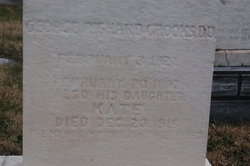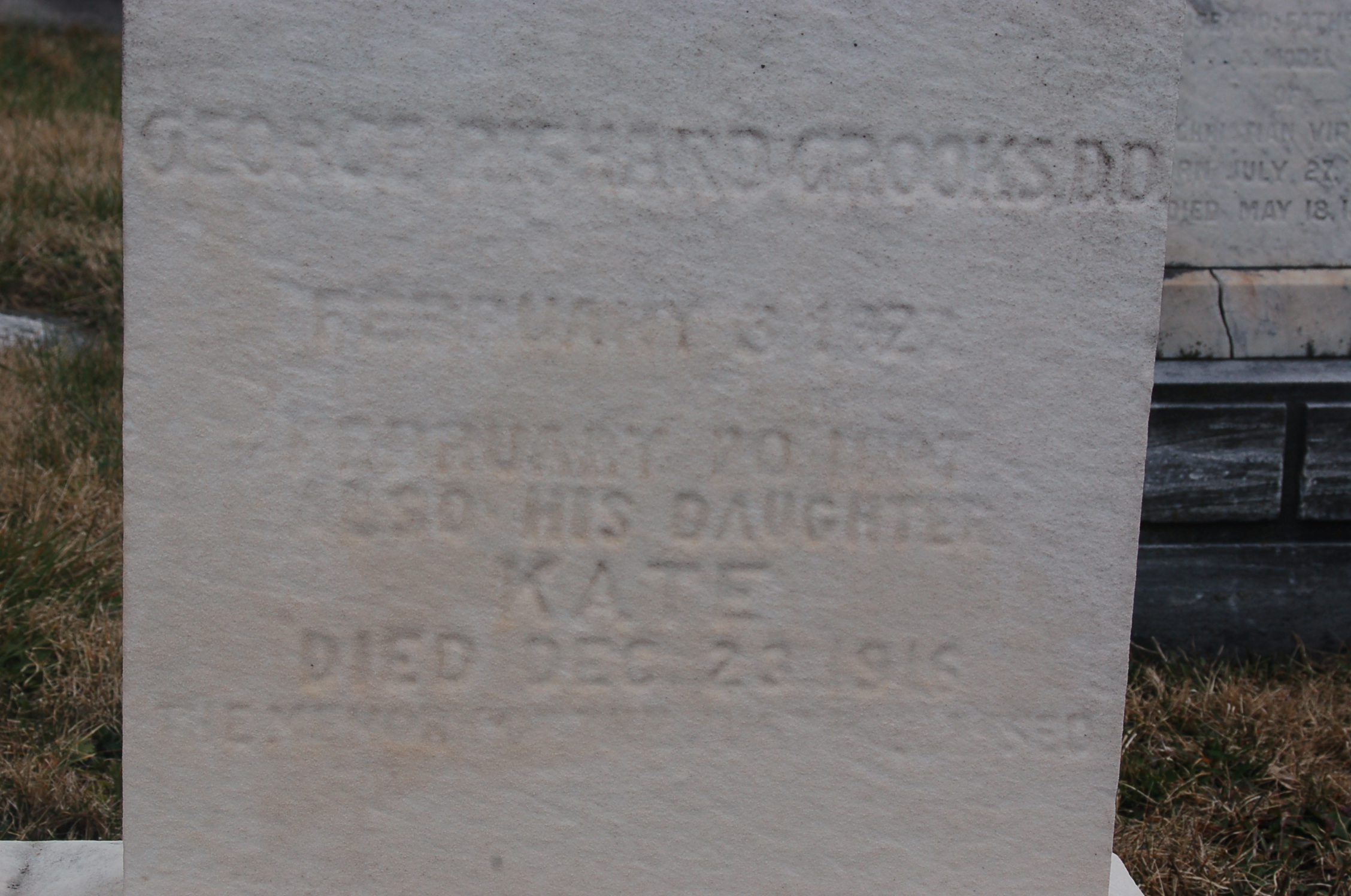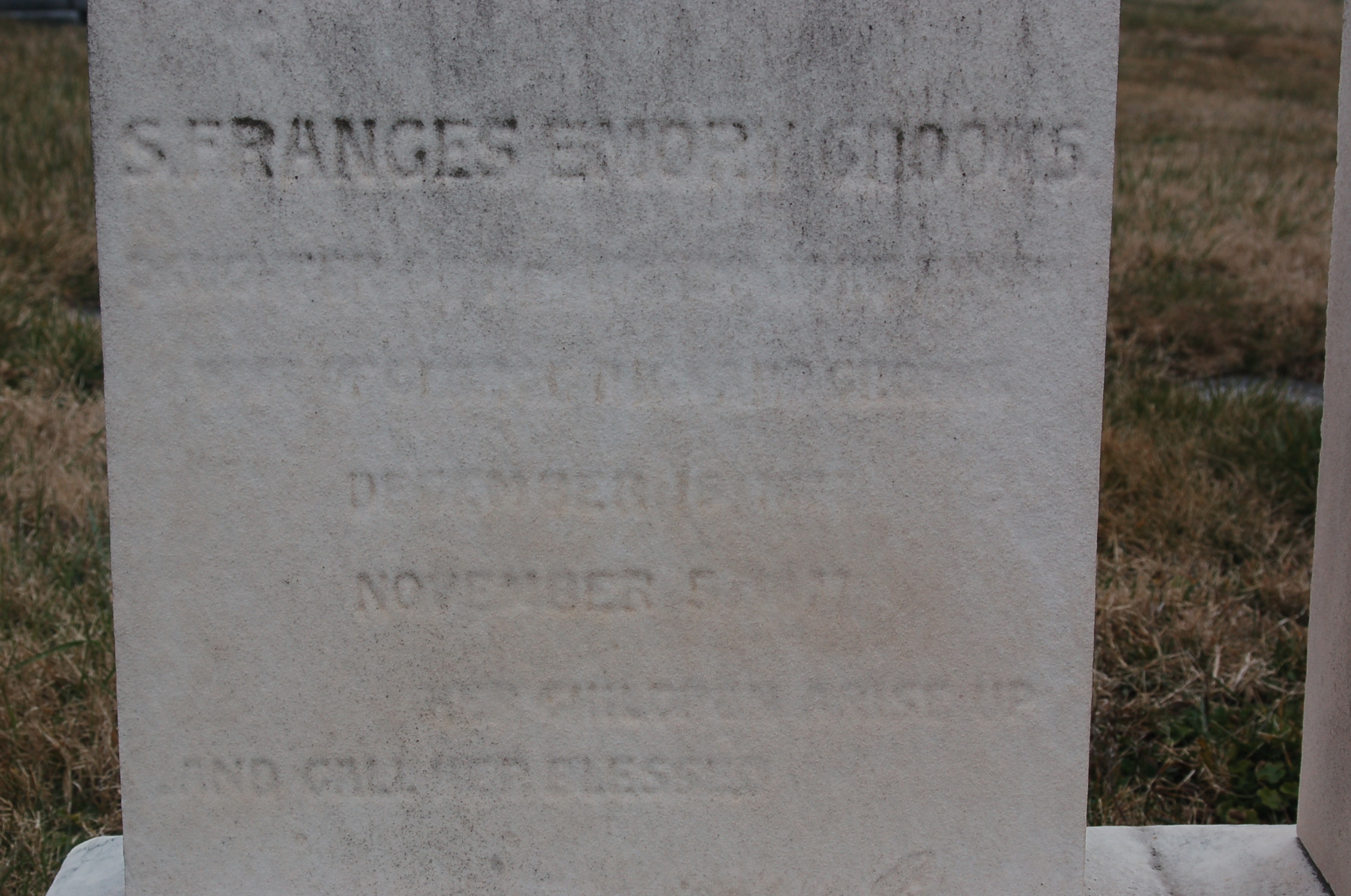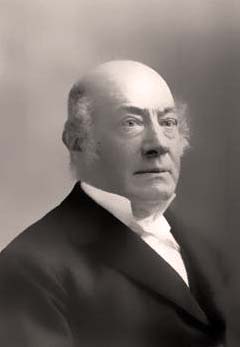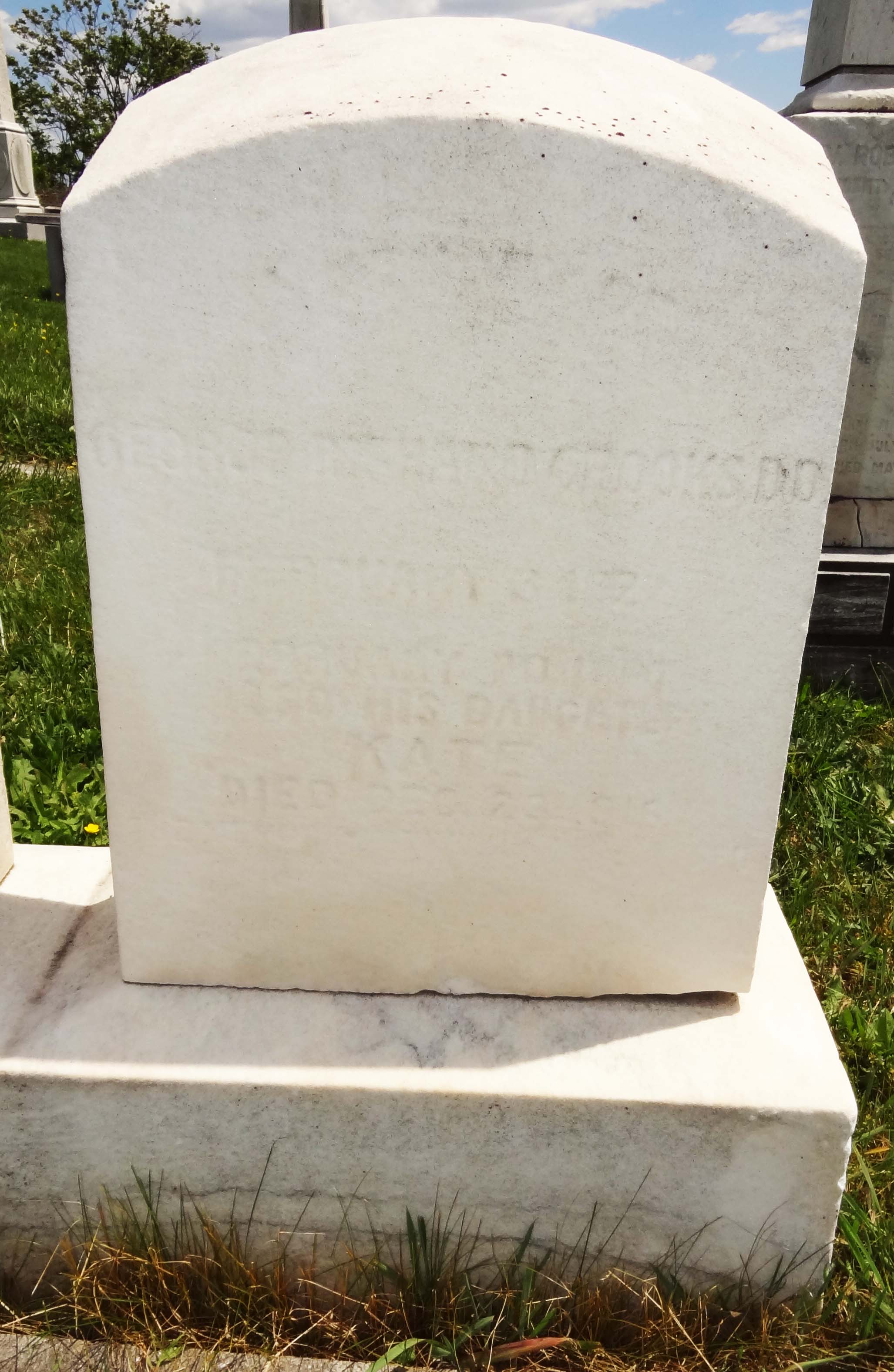He was born in Philadelphia to George Richard Crooks Senior and Mary Crooks. His father was a currier or skilled leather craftsman who worked in Philadelphia until the family settled in Carlisle, Pennsylvania.
He entered Dickinson College and graduated with high honors at the age of 18 and then joined the Methodist Traveling Ministry, preaching on a circuit in Illinois. He was appointed to the Dickinson faculty in 1842, serving, sequentially, as tutor, Principal of the Collegiate Grammar School, and Adjunct Professor of Latin and Greek. He entered the Philadelphia Conference of the Methodist Episcopal Church in 1843 and, after resigning from Dickinson, served parishes in Pennsylvania, Delaware, and New York. These included prestigious positions at Trinity Methodist Episcopal Church and St. John's in Philadelphia; St. Paul's Methodist Episcopal Church, Wilmington, Delaware; and Seventeenth Street Methodist Episcopal Church, New York.
In 1856 he was a delegate to the General Conference of the Methodist Episcopal Church, thereby enhancing his visibility and national influence. Dickinson College awarded him an honorary Doctor of Divinity Degree the next year and a Doctor of Laws Degree in 1865. From 1860 to 1875 he edited the Methodist, a progressive and highly-acclaimed weekly. He argued strongly for seminary-trained ministers, for lay representation, for increased involvement of children in the church, and, at the time of the Civil War, for cohesiveness of the Church.
He was a distinguished scholar whose writings include (with Dr. John McClintock) First Book in Latin and First Book in Greek, Life and Letters of Dr. John McClintock, Life of Bishop Simpson, and the Story of the Christian Church. He edited Bishop Butler's Analogy of Religion, and (with J. F. Hurst) Theological Encyclopedia and Methodology. Culminating his career, in 1880 Rev. George Crooks was appointed Professor of Historical Theology at Drew Theological Seminary in Madison, New Jersey.
His former student, and later Bishop, William Franklin Anderson reflected, "naturally his mind was keen and penetrating, and he supplemented nature's lavish gifts by the most scrupulous mental discipline. . . .Students felt instinctively the spell of his noble manhood. He was the living embodiment of his own ideals."
Rev. Anderson summarized his mentor as "a life which for intellectual and moral earnestness has had few equals and no superiors in Methodism." Prof. Henry M. Harman, another former student, praised Rev. Crooks as "one of the greatest men that Methodism has yet produced." He married Susan Frances Emory in 1846 and raised seven children, four of whom survived to adulthood.
He was born in Philadelphia to George Richard Crooks Senior and Mary Crooks. His father was a currier or skilled leather craftsman who worked in Philadelphia until the family settled in Carlisle, Pennsylvania.
He entered Dickinson College and graduated with high honors at the age of 18 and then joined the Methodist Traveling Ministry, preaching on a circuit in Illinois. He was appointed to the Dickinson faculty in 1842, serving, sequentially, as tutor, Principal of the Collegiate Grammar School, and Adjunct Professor of Latin and Greek. He entered the Philadelphia Conference of the Methodist Episcopal Church in 1843 and, after resigning from Dickinson, served parishes in Pennsylvania, Delaware, and New York. These included prestigious positions at Trinity Methodist Episcopal Church and St. John's in Philadelphia; St. Paul's Methodist Episcopal Church, Wilmington, Delaware; and Seventeenth Street Methodist Episcopal Church, New York.
In 1856 he was a delegate to the General Conference of the Methodist Episcopal Church, thereby enhancing his visibility and national influence. Dickinson College awarded him an honorary Doctor of Divinity Degree the next year and a Doctor of Laws Degree in 1865. From 1860 to 1875 he edited the Methodist, a progressive and highly-acclaimed weekly. He argued strongly for seminary-trained ministers, for lay representation, for increased involvement of children in the church, and, at the time of the Civil War, for cohesiveness of the Church.
He was a distinguished scholar whose writings include (with Dr. John McClintock) First Book in Latin and First Book in Greek, Life and Letters of Dr. John McClintock, Life of Bishop Simpson, and the Story of the Christian Church. He edited Bishop Butler's Analogy of Religion, and (with J. F. Hurst) Theological Encyclopedia and Methodology. Culminating his career, in 1880 Rev. George Crooks was appointed Professor of Historical Theology at Drew Theological Seminary in Madison, New Jersey.
His former student, and later Bishop, William Franklin Anderson reflected, "naturally his mind was keen and penetrating, and he supplemented nature's lavish gifts by the most scrupulous mental discipline. . . .Students felt instinctively the spell of his noble manhood. He was the living embodiment of his own ideals."
Rev. Anderson summarized his mentor as "a life which for intellectual and moral earnestness has had few equals and no superiors in Methodism." Prof. Henry M. Harman, another former student, praised Rev. Crooks as "one of the greatest men that Methodism has yet produced." He married Susan Frances Emory in 1846 and raised seven children, four of whom survived to adulthood.
Gravesite Details
Burial Date: 02/24/1897, Permit # 15459
Family Members
Advertisement
Explore more
Sponsored by Ancestry
Advertisement
